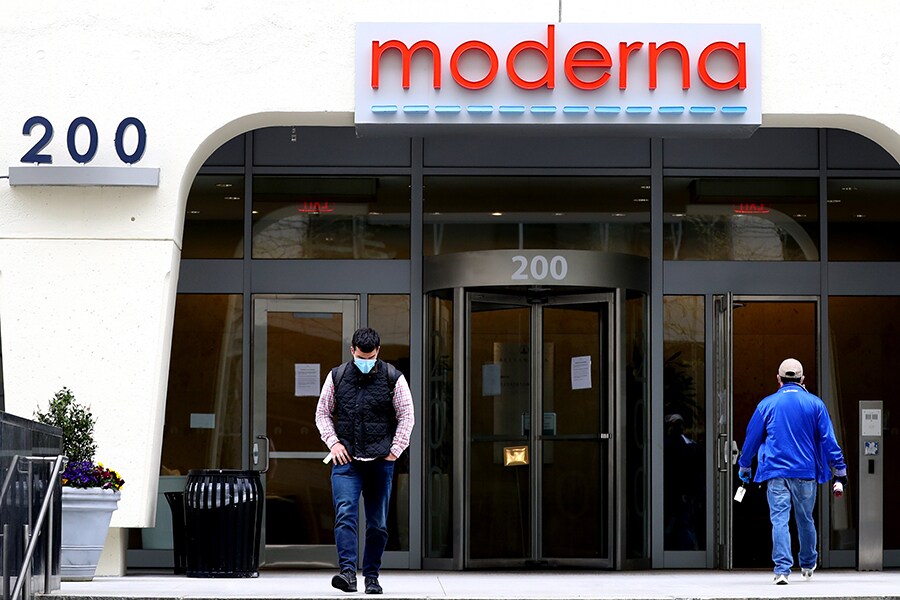
Moderna vaccine test in monkeys shows promise
The vaccinated animals still had some virus in their noses but significantly less than unvaccinated animals did
 CAMBRIDGE, MASSACHUSETTS - MAY 08: A view of Moderna headquarters on May 08, 2020 in Cambridge, Massachusetts. Moderna was given FDA approval to continue to phase 2 of Coronavirus (COVID-19) vaccine trials with 600 participants. Image: Maddie Meyer/Getty Images
CAMBRIDGE, MASSACHUSETTS - MAY 08: A view of Moderna headquarters on May 08, 2020 in Cambridge, Massachusetts. Moderna was given FDA approval to continue to phase 2 of Coronavirus (COVID-19) vaccine trials with 600 participants. Image: Maddie Meyer/Getty Images
Monkeys given the Moderna coronavirus vaccine and then deliberately infected were able to fight off the virus, quickly clearing it from their lungs, researchers reported Tuesday.
The findings do not guarantee that the vaccine will perform the same way in people, but the results are considered encouraging and a milestone in the struggle against the pandemic. If an experimental vaccine fails in monkeys, that is generally seen as a bad sign for its ability to work in humans. This type of study is considered valuable because infecting people on purpose, although sometimes done, is not standard practice.
On Monday, clinics around the country began a Phase 3 trial of the vaccine candidate from Moderna, a biotech company based in Massachusetts, with the aim of enrolling 30,000 people to test for safety and effectiveness.
“The virus was cleared very rapidly in the vaccinated animals,” said Dr. Barney Graham, the senior author of a report in The New England Journal of Medicine and the deputy director of the Vaccine Research Center at the National Institute of Allergy and Infectious Diseases. Graham’s scientific team collaborated with Moderna to develop the vaccine.
Unvaccinated animals in the control group did not quickly get rid of the virus.
©2019 New York Times News Service




